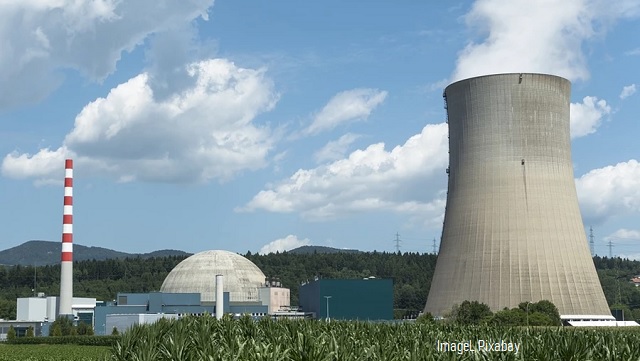Sustainable Development: ESG and Social Credit Scores

Sustainable Development, Agenda 2030, and the Great Reset (full series)
Sustainability | Origins | ESG and Social Credit Scores Bad Economics | Maurice Strong | UN History
ESG and Social Credit Scores
The “sustainability” concept was introduced to the investing world in 2006 with the UN publication “Principles for Responsible Investing” (PRI), which advocated investments that incorporated environmental, social, and governance (ESG) concepts.[1] Once again, the three Es of sustainability, but government has replaced the E of economy, making the governmental role explicit. This agenda is now explicitly tied to Agenda 2030 and as of 2019 included 2,450 PRI signatory companies with assets totaling $80 trillion under management.[2]
Citing the UN-mandated SDGs, Acuity Knowledge Partners, an investment advisory group, calls “sustainable finance” a “new frontier” toward investment banking that is “environmentally and socially sustainable.”[3]
Numerous organizations now pursue the UN’s notion of sustainability. This includes large and influential organizations explicitly involved in promoting Agenda 2030, such as the WEF, BlackRock, and thousands of smaller ones. BlackRock partners with Climate Action 100, which includes numerous corporations, other investment funds, and nonprofits controlling $60 trillion in assets.[4]
At the November 2022 G20 Summit in Bali, Indonesia, member countries including the U.S. signed the Bali Declaration, which acknowledges support of the UN Sustainable Development Goals:
We met in Bali on 15–16 November 2022, at a time of unparalleled multidimensional crises. We have experienced the devastation brought by the Covid-19 pandemic, and other challenges including climate change, which has caused economic downturn, increased poverty, slowed global recovery, and hindered the achievement of the Sustainable Development Goals. [emphasis added][5]
Like many of the leftist agendas, once it caught on, it grew and metastasized. Sustainability now includes dozens of “social equity” concepts, social credit scores, and the WEF’s “reinventing” capitalism—calling it “stakeholder capitalism.” It is also behind the movement to abolish all carbon fuels and gasoline-powered autos.
First articulated in a 1973 Davos Manifesto, stakeholder capitalism directs corporate profits to underwrite the Left’s wish list of woke agendas.[6] It not only violates corporate responsibilities to shareholders, but also subtly undermines private property rights by providing benefits to many “stakeholders” that have no ownership in the relevant stocks. KPMG has stated:
KPMG ESG solutions are both holistic and practical. We’ll guide your teams to drive sustainable innovation across your business and help you gain a competitive edge. With deep expertise across critical issues—including decarbonization, reporting, sustainable finance and DEI (diversity, equity and inclusion)—we’ll help you create the right blueprint for integrating ESG. A blueprint that simplifies your strategy, guides its full implementation and lets you take the lead on ESG . . . because how you grow matters.[7]
KPMG has an entire department devoted to directing its clients into an ESG model. Its “ESG Maturity Assessment” makes clear that results of that assessment will become public knowledge—an implicit form of social credit scoring that will pressure any company foolish enough to complete the assessment to comply with WEF dictates. Cheryl Crumley of the Washington Times writes:
Under a WEF-imagined stakeholder system, banks wouldn’t lend to businesses that don’t comply with, say, climate change policies or, say, vaccination mandates. Investors wouldn’t invest if the WEF didn’t approve. Insurers wouldn’t insure—governments wouldn’t permit—developers wouldn’t develop—builders wouldn’t build—and so forth and so on. The government, through partners and friends in business, would be the behind-the-scenes’ strings puller. And better believe this: The only businesses that would fit into this new government-run system would be the leftists.[8]
Following the 2023 Davos meeting, WEF announced that 137 companies had developed Stakeholder Capitalism Metrics, a way to measure and report nonfinancial disclosures that showed their progress in meeting ESG goals:
Global challenges amplified by the climate crisis and the COVID-19 pandemic have made ESG issues even more pressing for policymakers, boards and executives.
To promote alignment among existing metrics and disclosure frameworks, the World Economic Forum, with partners including Deloitte, EY, KPMG and PwC, has identified a set of universal metrics and disclosures—the Stakeholder Capitalism Metrics.[9]
In 2020, the WEF reported that “120 of the world’s largest companies” had created the Stakeholder Capitalism Metrics.[10] So by 2023, it had actually added only 17 companies, and only 55 of the 137 had been reporting for the past two years.[11] Maybe the enthusiasm for stakeholder capitalism is overrated? BlackRock, the most aggressive promoter of sustainable development, is apparently having second thoughts about its support for stakeholder capitalism at the expense of its investors.[12] Meanwhile CEO Larry Fink is facing pressures to resign.[13]
The World Bank Digital ID for sustainable development is also a component of the Agenda 2030 goals. McKinsey Global Institute calls the digital ID “a key to inclusive growth”:
Digital identification, or “digital ID,” can be authenticated unambiguously through a digital channel, unlocking access to banking, government benefits, education, and many other critical services. The risks and potential for misuse of digital ID are real and deserve careful attention. When well-designed, digital ID not only enables civic and social empowerment, but also makes possible real and inclusive economic gains—a less well understood aspect of the technology.[14]
McKinsey acknowledges that digital IDs could be abused and that a successful digital ID program must be guided by the rule of law. But whose law? China and many other nations recognize no law and use social credit scores to control and persecute their people. To imagine that the UN would respect individual rights would require ignoring practically everything the UN does. The United States appears to be following suit as more and more government corruption and incompetence is discovered at every level. Imposing digital ID on everyone in the world would put everyone under the control of increasingly despotic governments.
The idea of using digital IDs as vaccine passports was also discussed at the G20 meeting. The declaration included a section promoting “digital solutions and non-digital solutions, including proof of vaccinations . . . as part of the efforts to strengthen prevention and response to future pandemics, that should capitalize and build on the success of the existing standards and digital COVID-19 certificates.”[15]
According to Charity Support, for 2023 the top nine nonprofits promoting sustainability concepts are:
- Environmental Working Group
- Union of Concerned Scientists
- Earthjustice
- Natural Resources Defense Council
- Environmental Defense Fund
- Friends of the Earth
- The Nature Conservancy
- Rainforest Alliance
- Conservation International
But as we have seen, that is just the tip of the iceberg. The entire society has become infected with this misplaced agenda. MIT even offers a professional certificate program for “sustainability.” Many colleges now offer a bachelor’s degree in sustainability.[16]
AUTHOR
James Simpson
In the next installment, net-zero carbon emissions would inevitably lead to hyperinflation and economic collapse.
[1] Principles for Responsible Investment, “What Are the Principles for Responsible Investment?,” accessed June 23, 2022, https://www.unpri.org/about-us/what-are-the-principles-for-responsible-investment.
[2] Betsy Atkins, “Demystifying ESG: Its History & Current Status,” Forbes, June 8, 2020, https://www.forbes.com/sites/betsyatkins/2020/06/08/demystifying-esgits-history–current-status/?sh=16a12eba2cdd.
[3] Acuity Knowledge Partners, “Sustainable Finance—The New Frontier for Investment Banking Growth,” December 5, 2022, https://www.acuitykp.com/sustainable-finance-the-new-frontier-for-investment-banking-growth/.
[4] InfluenceWatch, “Climate Action 100,” accessed January 5, 2023, https://www.influencewatch.org/non-profit/climate-action-100/.
[5] G20, “G20 Bali Leaders’ Declaration,” Bali, Indonesia, November 15-16, 2022, https://www.consilium.europa.eu/media/60201/2022-11-16-g20-declaration-data.pdf.
[6] Klaus Schwab, “Davos Manifesto 1973: A Code of Ethics for Business Leaders,” World Economic Forum, December 2, 2019, https://www.weforum.org/agenda/2019/12/davos-manifesto-1973-a-code-of-ethics-for-business-leaders/.
[7] KPMG, “KPMG ESG,” accessed November 14, 2022, https://www.kpmg.us/services/kpmg-esg.html.
[8] Cheryl K. Chumley, “Stakeholder Capitalism Is Communism in Disguise,” Washington Times, September 28, 2021, https://www.washingtontimes.com/news/2021/sep/28/stakeholder-capitalism-communism-disguise/.
[9] World Economic Forum, “Stakeholder Capitalism Metrics Initiative: Over 130 Companies Implement Sustainability Reporting Metrics,” January 2023, https://www.weforum.org/impact/stakeholder-capitalism-reporting-metrics-davos2023/.
[10] World Economic Forum, “Measuring Stakeholder Capitalism: Towards Common Metrics and Consistent Reporting of Sustainable Value Creation,” September 22, 2020, https://www.weforum.org/reports/measuring-stakeholder-capitalism-towards-common-metrics-and-consistent-reporting-of-sustainable-value-creation.
[11] World Economic Forum, “Stakeholder Capitalism Metrics Initiative.”
[12] Amelia Pollard, “BlackRock Is Caught in the ESG Crossfire and Struggling to Get Out,” Bloomberg, December 15, 2022, https://www.bloomberg.com/news/features/2022-12-15/blackrock-is-caught-in-the-esg-crossfire-and-struggling-to-get-out.
[13] Eric Revell, “ESG Fallout: BlackRock CEO Larry Fink Should Resign, Says State Treasurer,” Fox News, December 9, 2022, https://www.foxbusiness.com/markets/esg-fallout-blackrock-ceo-larry-fink-should-resign-says-state-treasurer.
[14] Olivia White et al. “Digital Identification: A Key to Inclusive Growth,” McKinsey Digital, accessed January 5, 2023, https://www.mckinsey.com/capabilities/mckinsey-digital/our-insights/digital-identification-a-key-to-inclusive-growth.
[15] G20, “G20 Bali Leaders’ Declaration.”
[16] BestColleges.com, “Bachelor’s in Sustainability Program Guide,” January 21, 2022, https://www.bestcolleges.com/features/sustainability-degree-programs/.
Donate today to assist in promoting the principles of individual liberty in America.
EDITORS NOTE: This Capital Research Center column is republished with permission. All rights reserved.




